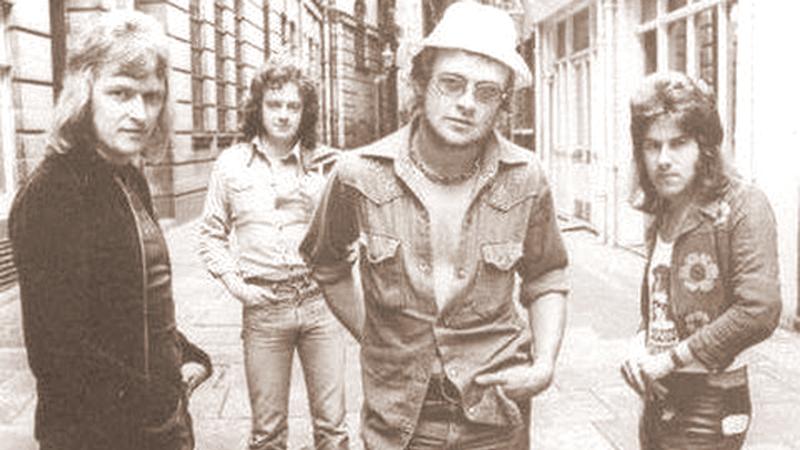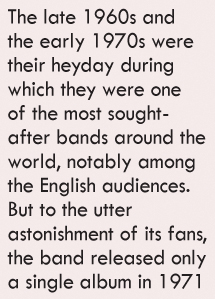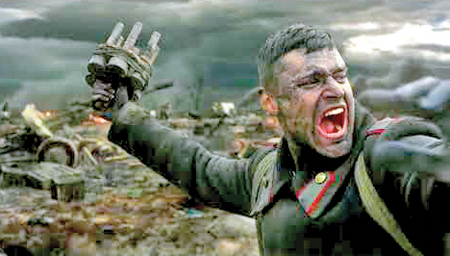
Iam not ostensibly and seemingly, but fundamentally and authentically, a committed pacifist all my life.The history of war runs back to the very beginning of human civilization and since then by hook or by crook, for better or for worse, war has not been far from the lips.
 Being an ardent fan of ‘The Bard’, I just could not fend off myself from being triggered over my sheer intensity of flowing through the masterly and splendid battle of words, engulfed with some specific playwrights and sonnets of ‘The Bard’ where with an immensely rich literary devices, a speculation is centered on the atrocities and adversities that spring in a fiercely fought war.
Being an ardent fan of ‘The Bard’, I just could not fend off myself from being triggered over my sheer intensity of flowing through the masterly and splendid battle of words, engulfed with some specific playwrights and sonnets of ‘The Bard’ where with an immensely rich literary devices, a speculation is centered on the atrocities and adversities that spring in a fiercely fought war.
While creating ample room for my soaring soul to manipulate my logical mind and inviting my power of wit to own my own synopsis over an awe-inspiring and breath-taking song that speaks to the sentimental of a dove that shuns the traumas, tragedies and the calamities brought out by the war, I found myself having a mere glimpse on a link, Shared by Krish K, a learned buddy of mine who suggested me to listen to ‘Six-Day War’, by Colonel Bagshot.
I rush to call this a coincidence; my forms and notions were centrally on ‘The Bard’, where Krish was legitimately hailing and endorsing Colonel Bagshot, a Liverpool-based British band along with their contemporaries ‘The Beatles’, lived some 160 kilometres away from Stratford-upon-Avon, where ‘The Bard’ was born and bread.
Despite by the fact that Colonel Bagshot has sung one of the most amazing and heart-warming anti-war songs of all time, like some rock bands, it is frequently unnoticed. I was forced to abandon my interest in locating a handsome piece of information on Colonel Bagshot as it was not sufficiently available. Colonel Bagshot initially called itself ‘Colonel Bagshot’s Incredible Bucket Band’ which sounded quite like an album by ‘The Beatles’.
During the initial days, the band comprised ‘Brian Farrell, Terry McCusker, Ken Parry and Dave Dover. The late 1960s and the early 1970s were their heyday during which they were one of the most sought-after bands around the world, notably among the English audiences. But to the utter astonishment of its fans, the band released only a single album in 1971 which was titled as ‘Oh What a Lovely War’. I am still lost in my thoughts and was not able to find the actual cause behind the band’s need of choosing such a title which may perhaps distract the listener: paving the way for a possible criticism over the title of the song that may invite a wrong inference on the mentality of the listener.
 There is an ambiguity whether this album title was referred to “Oh! What A Lovely War”, a 1969 British satirical war film directed by Richard Attenborough. However, any curious and investigative mind may again infer that with the elements of LP(Long Play) being undoubtedly antimilitaristic and non-aggressive, as well as the track of the title coltishly and blazingly being sarcastic lyric ‘Oh! What a Lovely War’, ‘What Was It For?’, ‘Let’s Have Another One,’ it must have been bit by bit inspired and inclined by the musical.
There is an ambiguity whether this album title was referred to “Oh! What A Lovely War”, a 1969 British satirical war film directed by Richard Attenborough. However, any curious and investigative mind may again infer that with the elements of LP(Long Play) being undoubtedly antimilitaristic and non-aggressive, as well as the track of the title coltishly and blazingly being sarcastic lyric ‘Oh! What a Lovely War’, ‘What Was It For?’, ‘Let’s Have Another One,’ it must have been bit by bit inspired and inclined by the musical.
Albeit, formalistically, Colonel Bagshot’s album may not be the very best around, the songs such as ‘Lord High Human Being’, ‘I’ve See the Light’, ‘That’s What I’d Like to Know’ as well as that of the track of the title are basically pretty remarkable songs, ‘Six Day War’ is without doubt a preeminent and the standout song of Colonel Bagshot. I am simultaneously surrounded by some doubts whether either the title or the lyrics of ‘Six Day War’, refers to the 1967 Arab-Israeli war which is also known as the ‘Six-Day War’.
According to the war veterans, the conflicts and the controversies between Israel and Egypt over the rights of Israeli shipping to sail through the Suez Canal and the Red Sea were the root causes behind the eruption of the Six-Day War. No matter whether or not this particular song sung by Colonel Bagshot had any relevance to this specific conflict situation, even after almost a five-decades after it was first sung, it even today, still maintains an unparalleled popularity as one of the ever best classic anti-war anthems.
The lyrics give a narration on a sequentially exacerbating situation lasting for six days, beginning with peace negotiations and ending up with the aftermath of a dropping of a bomb.With each and every verse, accentuated by the line “Tomorrow never comes until it’s too late”, this gloomy, bleak and fatalistic yet candid and factual line suggests that anybody who wishes for a better tomorrow may find the next day coming out with a worse set of circumstances, notably during a war.
The song reminds us that with each day mounting and intensifying in rigidity, stiffness, cruelty, brutality and bloodshed, as it comes to an unfolding of war, even a short day, engulfed with demerits and sins may give you an unpleasant feeling as if there is no foreseeable eventuality other than the death itself.
The song vehemently speaks to the hearts of every human being. It makes us feel that we got to warn and scold t ourselves over our own mistakes.Colonel Bagshot right from the very beginning and right unto its very end, manifests in the fact that a war, where ever fought for any reason brings nothing but tears, shame, guilt, anger, hatred, horror and hopelessness and therefore, peace, where ever it springs brings, bliss, glee, elation, buoyancy and cheerfulness.”I think tomorrow’s come; I think it’s too late”.
